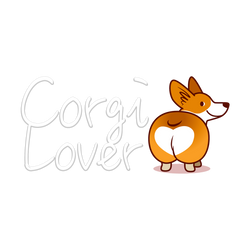When considering the best dog food for weight control, it is essential to focus on specific nutritional requirements, particularly for breeds predisposed to obesity, such as Corgis. High-quality protein sources combined with fiber-rich ingredients can play a pivotal role in managing weight effectively. Various brands offer tailored formulations, yet the choice can be overwhelming. This raises important questions about the most effective ingredients and strategies for portion control. What criteria should you prioritize to ensure your dog maintains a healthy weight?
Understanding Corgi Weight Issues

Corgis are predisposed to weight issues due to their unique body structure and a tendency to overeat, making it essential for owners to monitor their diet and exercise closely. Their short legs and long bodies can lead to obesity if not managed properly. Engaging in regular corgi exercise is vital to maintain a healthy weight and promote overall well-being.
Corgi behavior also plays a role in their weight management; they are often eager to eat and may beg for food. Owners should establish a consistent feeding schedule and provide appropriate portion sizes. Incorporating daily walks and playtime into their routine can help curb overeating and improve physical fitness.
Key Nutritional Needs for Corgis
To effectively manage their weight and maintain optimal health, it is crucial to understand the specific nutritional needs that support a corgi's unique physiology.
Corgis require a balanced diet that caters to their dietary restrictions, such as lower fat content to prevent obesity. High-quality protein sources are essential for muscle maintenance, while fiber aids in digestion and promotes satiety.
Additionally, corgis benefit from controlled feeding schedules, which help regulate their calorie intake and prevent overeating. It is advisable to feed smaller, frequent meals rather than one large portion, as this can enhance metabolism.
Always consult a veterinarian to customize a diet plan that meets your corgi's individual health needs, ensuring their long-term well-being.
Ingredients to Look For

When selecting dog food for weight control, prioritize ingredients that promote satiety while providing essential nutrients for overall health. Understanding ingredient sourcing and ingredient labeling is crucial in making informed choices.
Look for the following key ingredients:
- High-quality protein: Ingredients like chicken, turkey, or fish should be listed as the first component. These help build and maintain muscle while keeping your dog full.
- Fiber sources: Ingredients such as sweet potatoes, peas, or beet pulp can aid digestion and prolong feelings of fullness.
- Healthy fats: Look for sources like fish oil or flaxseed, which provide omega fatty acids, supporting skin and coat health without excessive calories.
Choosing dog food with these ingredients will help manage weight effectively while ensuring nutritional needs are met.
Top Recommended Dog Foods
Selecting the right dog food for weight control involves considering specific brands that are formulated to support weight management while delivering balanced nutrition. Popular options include Blue Buffalo, Hill's Science Diet, and Royal Canin. These brands are known for their commitment to quality and effective ingredient sourcing, ensuring that each formula contains the right nutrients for weight loss.
When making brand comparisons, it is essential to look for foods rich in protein and low in unhealthy fats. Additionally, some brands offer specialized formulas with added fiber to help dogs feel full.
Always consult with your veterinarian to find the most suitable option for your pet's individual needs, as they can guide you in selecting the best food for weight control.
Homemade Diet Options

When considering homemade diet options for weight control in dogs, it is crucial to focus on nutritional balance.
This involves understanding the essential nutrients your pet needs, implementing effective portion control strategies, and selecting healthy ingredients.
Nutritional Balance Essentials
A well-balanced homemade diet for dogs requires careful consideration of essential nutrients to ensure optimal health and effective weight control. This balance aids in proper nutrient absorption and manages calorie density, crucial for maintaining a healthy weight.
When planning a homemade diet, consider the following essentials:
- Proteins: Lean meats, fish, and eggs provide essential amino acids for muscle maintenance.
- Carbohydrates: Whole grains and vegetables serve as a source of energy while promoting digestive health.
- Fats: Healthy fats, such as fish oil, support skin health and provide necessary fatty acids.
Portion Control Strategies
Effective portion control is essential for managing a homemade diet, as it directly influences a dog's caloric intake and overall weight management. To achieve this, pet owners should prioritize measuring portions accurately. Using a kitchen scale or measuring cups ensures that each meal contains the right amount of food. Additionally, establishing consistent feeding schedules helps regulate a dog's appetite and prevents overeating.
Consider the following strategies for effective portion control:
- Divide daily food intake into two or three meals.
- Use a chart to track your dog's weight and adjust portions accordingly.
Healthy Ingredient Choices
Selecting healthy ingredients is crucial for creating a balanced homemade diet that supports a dog's weight control and overall well-being.
When preparing meals for your dog, consider incorporating the following elements:
- Lean Proteins: Chicken, turkey, or fish provide essential amino acids without excessive calories.
- Healthy Fats: Incorporate sources like fish oil or flaxseed oil to promote a shiny coat and healthy skin, while also aiding in weight management.
- Fiber Sources: Vegetables such as carrots, green beans, and sweet potatoes help maintain digestive health and keep your dog feeling full longer.
Portion Control Strategies
Implementing portion control strategies is essential for managing a dog's weight, as it helps ensure that they receive the appropriate amount of nutrients without excess calories.
One effective method is determining proper portion sizes based on the dog's age, weight, and activity level. Consulting with a veterinarian can provide guidance on these amounts.
Additionally, establishing consistent feeding schedules can help regulate your dog's eating habits, reducing the likelihood of overeating. For instance, feeding your dog twice a day at the same times can create a routine.
Utilizing measuring cups or a kitchen scale can further assist in maintaining accurate portion sizes.
Monitoring Corgi Weight Progress
Regularly tracking a Corgi's weight is crucial for assessing the effectiveness of a weight management plan and ensuring the dog's health remains a priority.
Consistent weight tracking not only helps in monitoring progress but also serves as a critical health indicator for pet owners.
To effectively monitor a Corgi's weight, consider the following steps:
- Weigh Weekly: Use a digital scale to obtain accurate readings. Consistency in timing, such as the same day each week, is key.
- Record Changes: Keep a journal to note weight fluctuations, which can help identify patterns or issues.
- Observe Behavior: Look for signs of lethargy or changes in eating habits as indicators of overall health.

